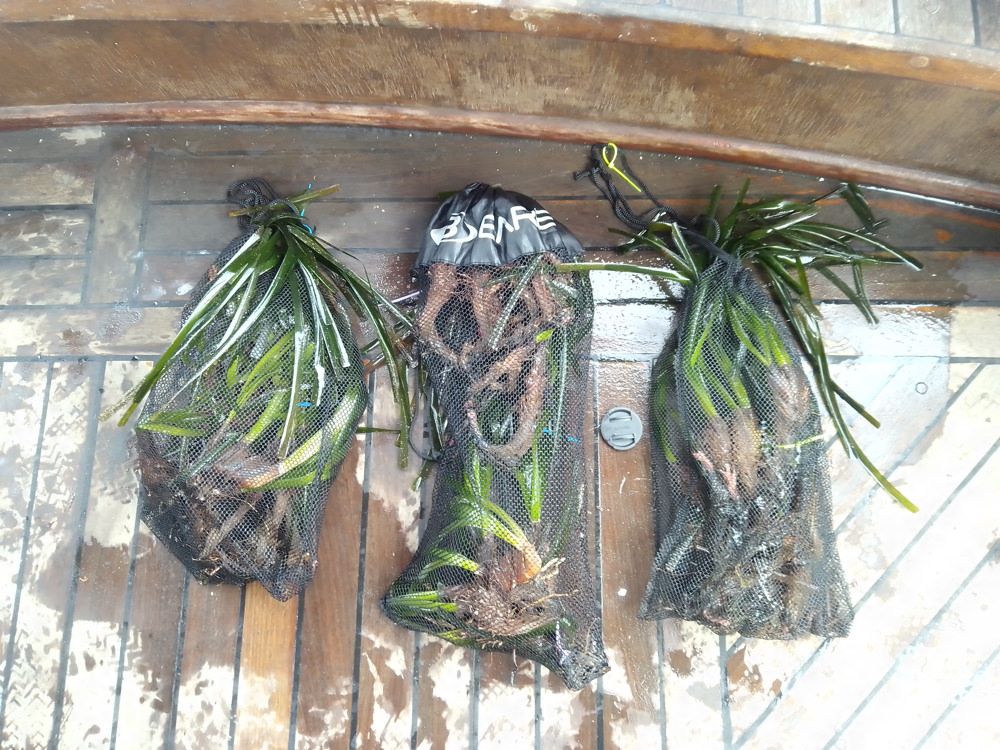Oceanus-Lab and the Institute of Chemical Engineering Sciences (FORTH/ICE-HT) surveying Posidonia oceanica
-
13 & 14 March 2021
-
13 & 14 March 2021

Posidonia oceanica (P. oceanica) meadows are presently experiencing a decline due to intensive human activities and climate change. Their protection, conservation, and restoration largely depend on our knowledge about their spatial extent, and ecological and biological characteristics. Metabolomic fingerprinting of P. oceanica can provide opportunities for early detection of environmental degradation.
In March 2021, a first sampling of P. oceanica plants took place in Patraikos Gulf, as a collaborative endeavor between Oceanus-Lab and the Institute of Chemical Engineering Sciences (FORTH/ICE-HT). The sampling was carried out in selected coastal areas which were indicated by detailed habitat maps previously built by Oceabus-Lab through marine geophysical surveys.
This is the first time that insights on P. oceanica metabolic profiling and biological characteristics are combined with detailed habitat mapping and environmental information (i.e., sediment and water column physical properties) for the investigation of the environmental stressors that control its prosperity.
P. Oceanica plant samples were collected from various depths by scuba divers. The plant parts were treated aboard the research vessel’s wet lab. Treatment included washing with seawater, tap water, and HPLC-grade water, and then scrapping from epiphytes, photographing, weighting partitioning, and sample storing in dry ice. The plant leaves were stored at -80 °C to be later analyzed for metabolites and nutrient content through mass spectrometry, while roots, rhizomes, and sheaths will be observed by Scanning Electron Microscope, and especially the novel wet-SEM technology, for microplastic content.
Documents
Location
Western Patraikos Gulf
